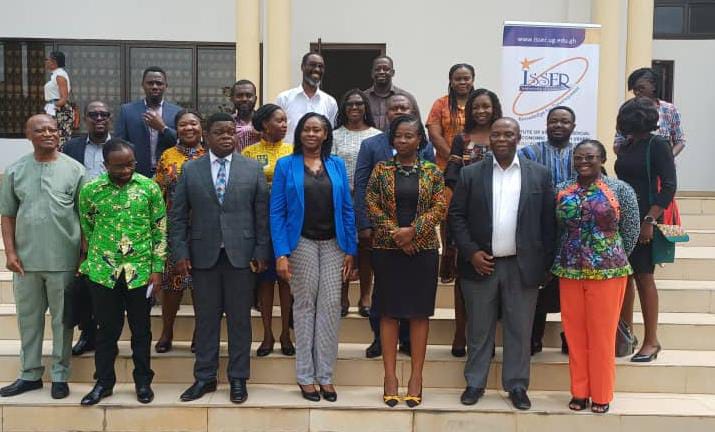The Institute of Statistical, Social And Economic Research (ISSER) of the University of Ghana has organized a dialogue session purposely for discussions centred on Ghana’s public debt management.
The development dialogue harnessed great minds who shared wonderful insights in presentations on the genesis of Ghana’s debt crises over the years until now, the major challenges that have been a set back in the nation’s fight to restore the economy and the way forward.
On the panel of discussion was the Director of ISSER, Prof. Peter Quartey, who expressed his disappointment in the parliament of Ghana for not applying timelines to the suspension of the Fiscal Responsibility Act 2018 (Act 982).
“We had a fiscal responsibility law where the Bank of Ghana Act did not allow the bank to lend more than 5% of the previous year’s revenue. But because of COVID, it was suspended. My disappointment is that the suspension didn’t have a timeline.”
“Parliament should have drawn a timeline aprind the suspension…. They have failed us. We gave the governor a ‘blanket check’ and they have used it to their advantage. And now they are going to picket and remove the governor. I may be wrong, but I can’t get it. I can’t understand.”
He also spoke on the effect of politics on economic issues in the country.
“There are economic challenges and we need to restructure the economy, enhance revenue mobilisation and spending but they are not possible due to political issues. So for instance if you want to spend, what kind of evaluation have you done to ensure that it is not better to spend it somewhere else…. there’s also election spending, road construction and others which are all politically motivated. I believe we have to go beyond that and do things in a less partisan manner.”
Economist and political risk analyst, Dr. Theo Achaeampong also added his view on matter, by claiming that policies implemented by political parties in their manifestoes are mostly not backed by in-depth assessment of the situation on the ground, thus leading to faulty implementation of governmental projects.
“And the problem is that when the political parties are brought to power, the implementation of these policies is not linked to the broader national development agenda. Most of the policies are not properly costed… they are not driven by any deep analysis of the structure of the country so in that kind of situation, the policies are being implemented wrongly and end up having to be changed or uncompleted.”
Citing the UK government as an example, he suggested that the political parties could emulate their style of policy planning.
“The solution is to push for alignment of our medium-term plans. For example, let’s look at the UK government website for any major policy intervention that has been implemented. There are two key documents that are to be used. One is called the business case which shows a clear intervention of the underlying assumptions, the financing requirements, the living and the money change, and the publishing and the planning. So collect the policy document, analyse why you want to [implement a policy], and how this connects to the world as a development agenda. There is also a logic framework that has very clear indicators in terms of input, outcomes, and impact.”
Matters concerning social services were addressed by the National Director of Development and Social Services, Presbyterian Church of Ghana, Mrs Teiko Sabah.
“Our staff members (Christian Health Association of Ghana) are leaving.… Just in 2023, over 10,000 nurses have applied for clearance to leave and more than 4000 have already left and this affecting us in health care. We are losing professionals. They are leaving the places where we need them most. Over the last five years, NHIL and SSNIT contributions have increased, however, only a fraction is transferred to the fund and there’s a lack of transparency. Just about 15 % is being transferred to us to be used to offer medical care to patients in the hard-to-reach areas, where does the rest of the money go?”
“Funding in education overall is going down so if GDP is going up and education is important to us, why are we deprioritizing education?”
–
Story by : Esther Esenam Ofori | univers.ug.edu.gh





